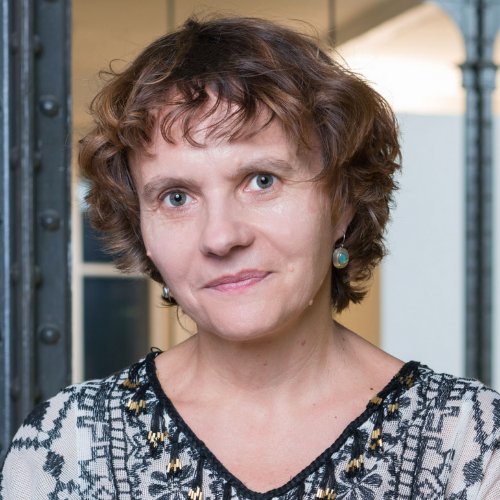Mathilde Mougeot
Researcher and professor in data science
Mathilde Mougeot is Professeur of Data Science at Ecole Nationale Supérieure d'Informatique pour l'Industrie et l'Entreprise (ENSIIE) and adjunct Professor at ENS Paris Saclay where she holds the Industrial Research Chair "Industrial Data Analytics & Machine Learning".
Since the beginning of her career, Mathilde Mougeot has been interested in machine learning for artificial intelligence applications. Her research activity is motivated by questions related to concrete applications stemming from collaborative projects with the socio-economic world. Her research focuses mainly on scientific issues related to predictive models in various contexts, such as those of high dimensionality , model aggregation, domain adaptation, data frugality by model transfer or by hybrid models.
Since September 2019, she has been Deputy Director of the Fondation Mathématique Jacques Hadamard (FMJH), in charge of the industrial relationships. She has been involved as Delegate Director in the Graduate School of Mathematics of Paris-Saclay University, since January 2020. From 2016 to 2019, she was scientific officer for technology transfer in the Mathematics Division of Centre National de la Recherche Scientifique (CNRS). From 1999 to 2005, she has been contributed to the creation and the development of the start-up Miriad Technologies, specialized in the development of mathematical solutions for the industry based on machine learning, statistics and signal processing techniques.
She has directed more than 50 collaborative R&D projects and she has supervised several students at the interface of academics and industry. She's presently teaching machine learning and statistics at a master level at ENSIIE and Paris-Saclay university.
Transfer Learning in Industry
In the industrial sector, it is now well established that it is possible to develop high value-added applications based on machine learning models calibrated using large quantities of historical data. However, when production types change or sensors are replaced on a production line, the data collected evolves, rendering previously calibrated machine learning models unusable. In this talk, we will discuss the benefits of using various domain adaptation techniques to counteract the degradation in model performance. Our presentation will be illustrated by a number of real-life industrial cases, for which determining the right transfer learning method can be a challenge in itself.

